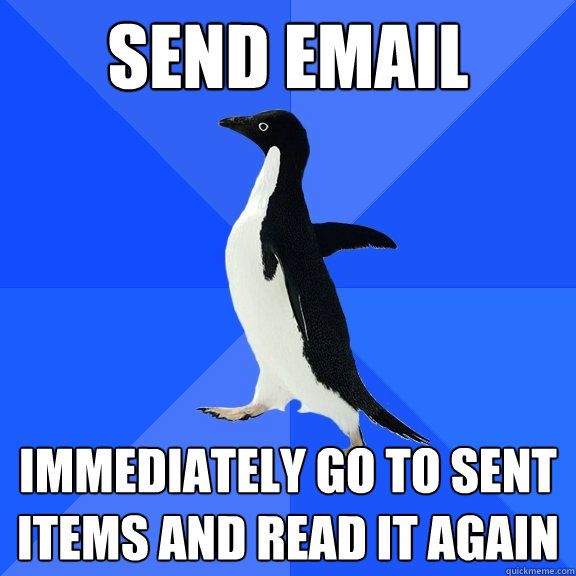Our workplace communication increasingly runs through e-mail programs rather than in person communication with colleagues. Even if the members of a project group are sitting two tables across, the latest version of the project or even the latest cat news will be forwarded by email. Some colleagues only learn the most necessary improvements through this medium.
Especially at higher levels it is seen as a constructive and personal communication method. Completely getting rid of e-mail communication is certainly not the near time future, so you should pay attention to certain things to ensure things are in order.
We have already pointed out last year a tad bit on the rules for handling e-mail communication. Today, we want to present to you the 5 critical failures in e-mails that you should avoid at all costs – especially if you hold a senior position!
5 worst failures in e-mails
1. No profanity
On the top of the list is something that should be a self-evident fact: do not use profanity. It is not uncommon to hear experiences of professionals who have experienced managers using highly inappropriate language expression if they are angry. Even if this is done internally this is not particularly showcasing you in a good light as a leader. It is anything but cool and it scoffed at by most.
2. Simply no reply, ever
Even if it is merely a confirmation or the long-awaited answer or a short thank you it will not take too much of your precious time. Just not responding is very rude. Unless you can clear the matter in a personal conversation on the topic that may generally be preferred.
3. Disputes over E-Mail
The technology development in the last years have have considerably changed dealings. It is not uncommon that Facebook posts will destroy all relations (including business). However, if you have a problem with one of your colleagues, then please clarify this in an conversation.
E-mails can certainly simplify many things but they can not replace important characteristics of human communication: facial expressions, gestures, body language, tonality which is very important to resolve a dispute.
4. At any cost E-Mail-communication shall stay
You should know when it is better to pick up the phone or even to choose a personal one to one session. And not send an over sized cargo via e-mail with too many details. If it is a complex project, then discuss this in a team and avoid misunderstandings.
Also, for major changes in the workflow or projects you should never communicate by e-mail but talk to the employees. This will provide a kind of two-way communication and get everyone involved. Otherwise, it may have a significant adverse effect on the motivation, productivity and commitment of your employees.
5. Fire employees via E-Mail
In recent times we have all heard about relationships being terminated by a mere SMS. Do you want to stoop to this level as a leader? Do not try to play the big boss here who can’t confront. An employee, for whatever reason, if dismissed, deserves a fair hearing. So give him constructive feedback and discuss in person the circumstances of the dismissal.
We hope that these notes will save future embarrassment or adverse consequences in the workplace, especially if you are in a senior position. On that note, off to decent e-mails.





